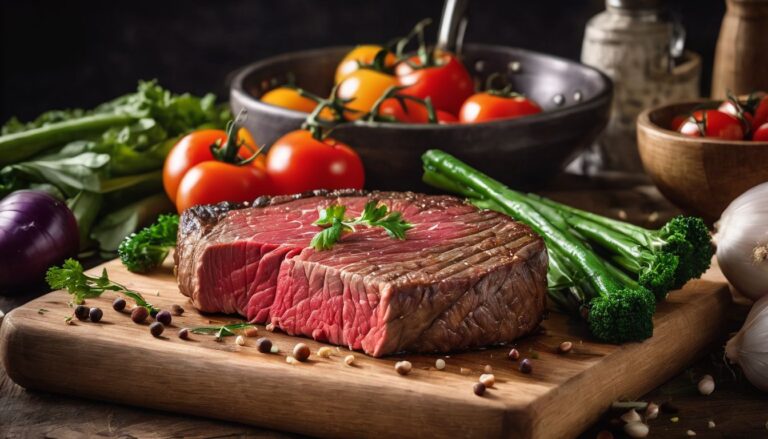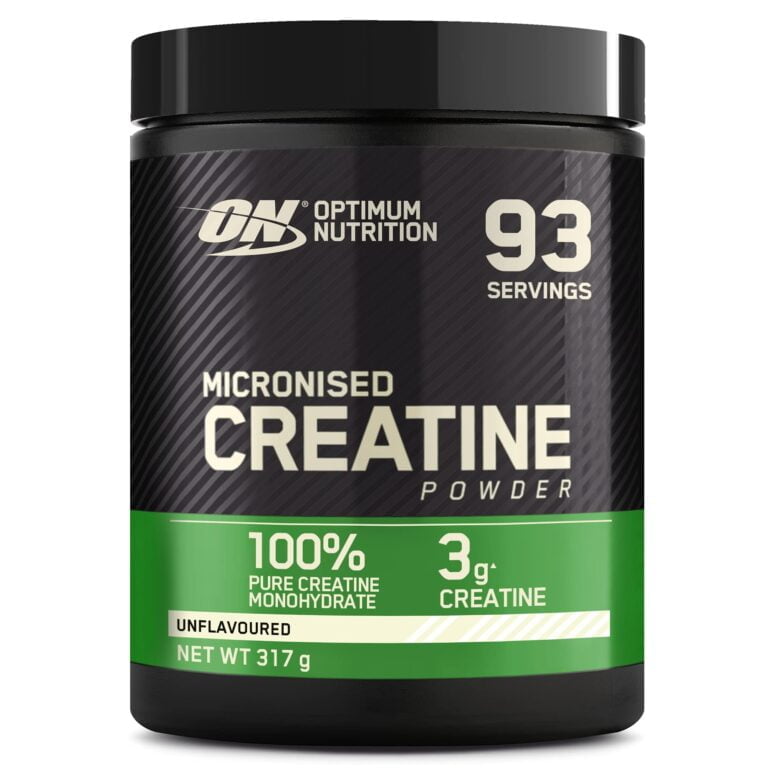Are Lentils A Good Source Of Protein? Exploring The Nutritional Benefits Of Lentils
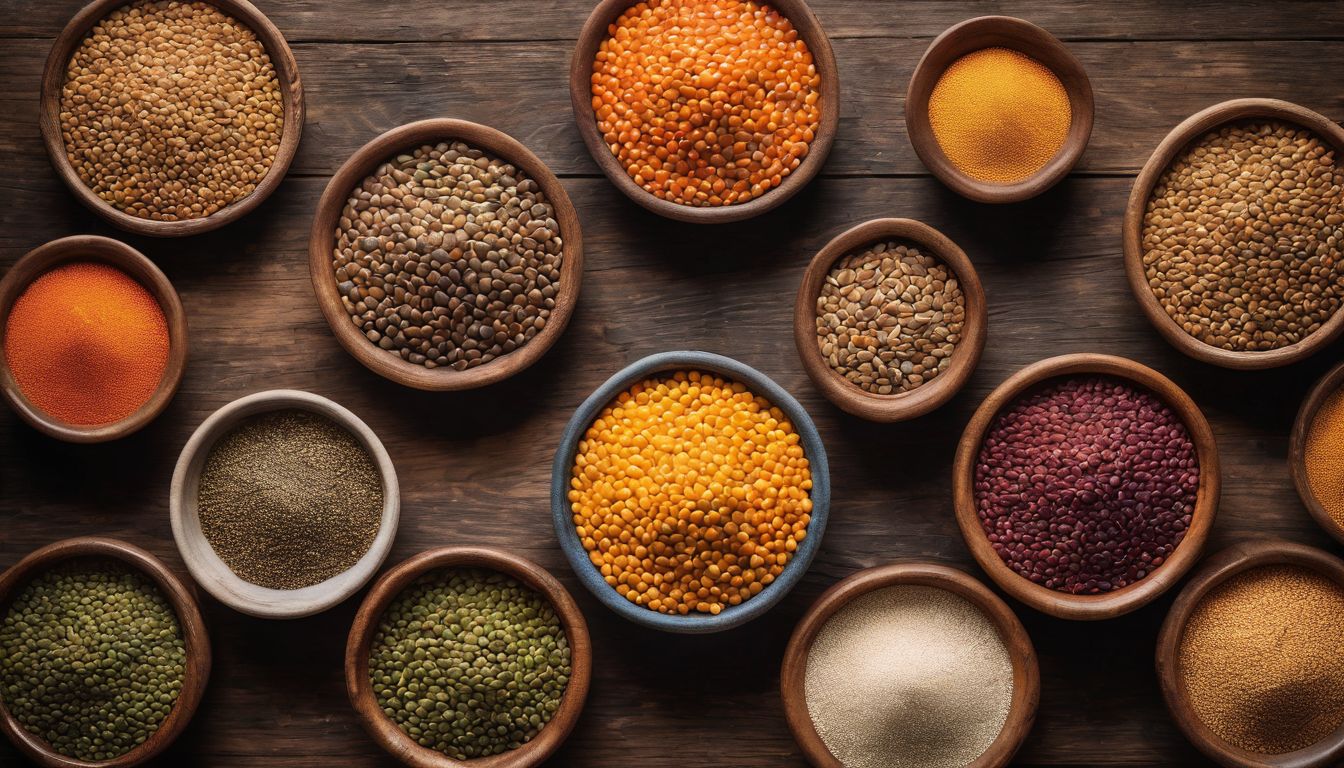
In a world where the quest for high-quality protein sources is ceaseless, lentils emerge as a prime candidate that challenges the conventional reliance on animal-based proteins. With my background in nutrition and dietetics, I’ve spent years examining how plant-based foods like lentils contribute to overall health and muscle maintenance.
Lentils aren’t just another legume; they are powerhouses of nutrition that punch well above their weight.
Packed with essential nutrients and boasting a notable protein content per serving, lentils stand out as an excellent choice for anyone looking to enrich their diet. Their versatility in meals—ranging from hearty soups to refreshing salads—adds to their appeal.
Prepare to discover how these small seeds can make a big impact on your health journey! Keep reading; it’s worth your while.
Key Takeaways
- Lentils provide a high protein content, making them an excellent choice for those seeking to boost their protein intake without relying on meat. They are rich in essential amino acids and can support muscle building and repair, especially for individuals following vegetarian or vegan diets.
- In addition to being a good source of protein, lentils are packed with B vitamins, folate, iron, and potassium. These nutrients support overall health by aiding in energy production, tissue growth, red blood cell formation, and maintaining muscle function.
- With their high fiber content, lentils contribute to appetite management by promoting satiety and supporting digestive health. They also offer benefits such as stabilizing blood sugar levels and managing cholesterol levels.
What Are Lentils?
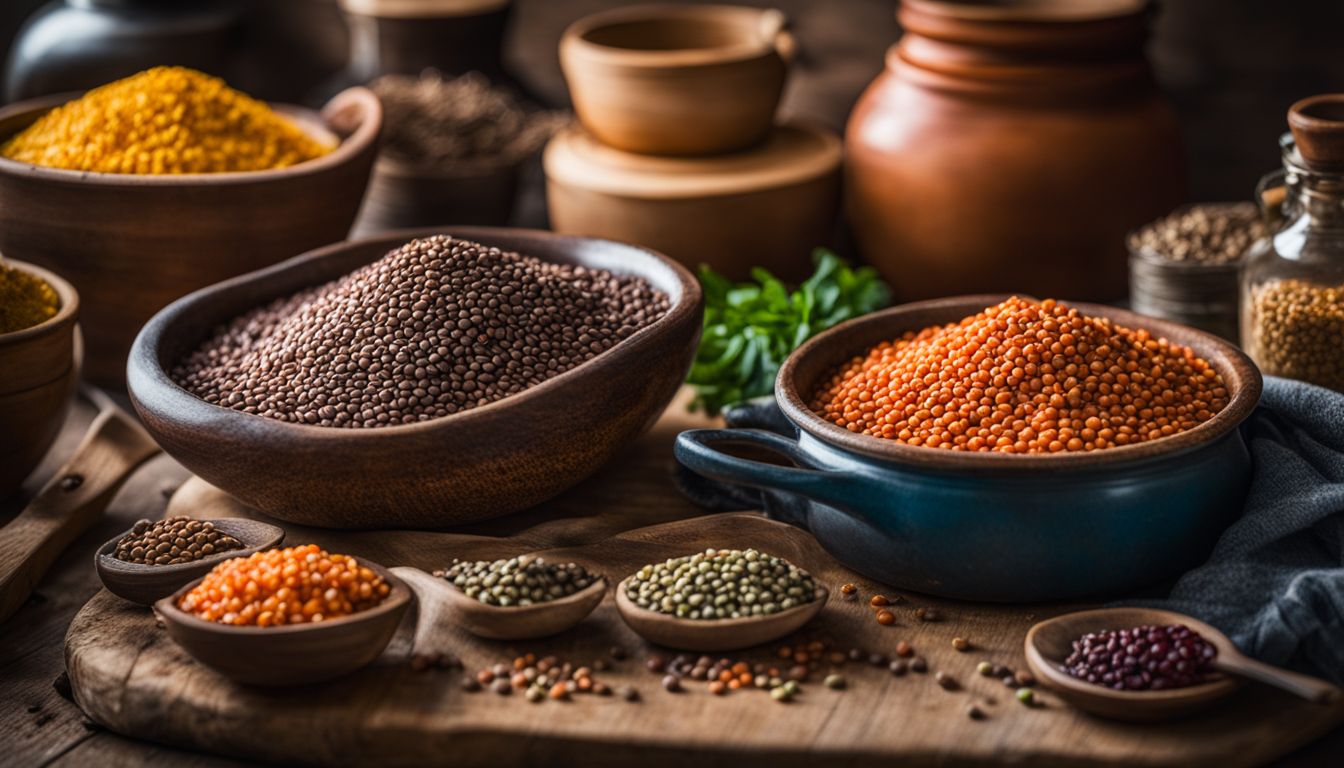
Lentils are versatile legumes packed with nutrition and hailed as a staple in many parts of the world. These small, lens-shaped seeds come in various colors, including green, brown, red, and black.
As plant-based protein powerhouses, lentils provide essential nutrients without the high calories or fats found in other protein sources. They stand out not only for their protein content but also because they’re fibrous and full of polyphenols—plant chemicals with significant antioxidant properties.
These nutritional gems are an ideal addition to a vegetarian or vegan diet thanks to their richness in amino acids—the building blocks of proteins. Unlike some other legumes that require pre-soaking, lentils cook quickly and can be enjoyed in soups, stews, salads, or as a meat substitute.
Their low sodium and saturated fat content make them a heart-healthy choice while delivering potassium for muscle function and folate for cell growth and maintenance—a nutritious punch that supports overall health and well-being.
Nutritional Benefits of Lentils

Lentils are high in protein, B vitamins, folate, iron, and potassium. They can help with muscle building and maintenance as well as appetite management due to their fiber content.
High protein content
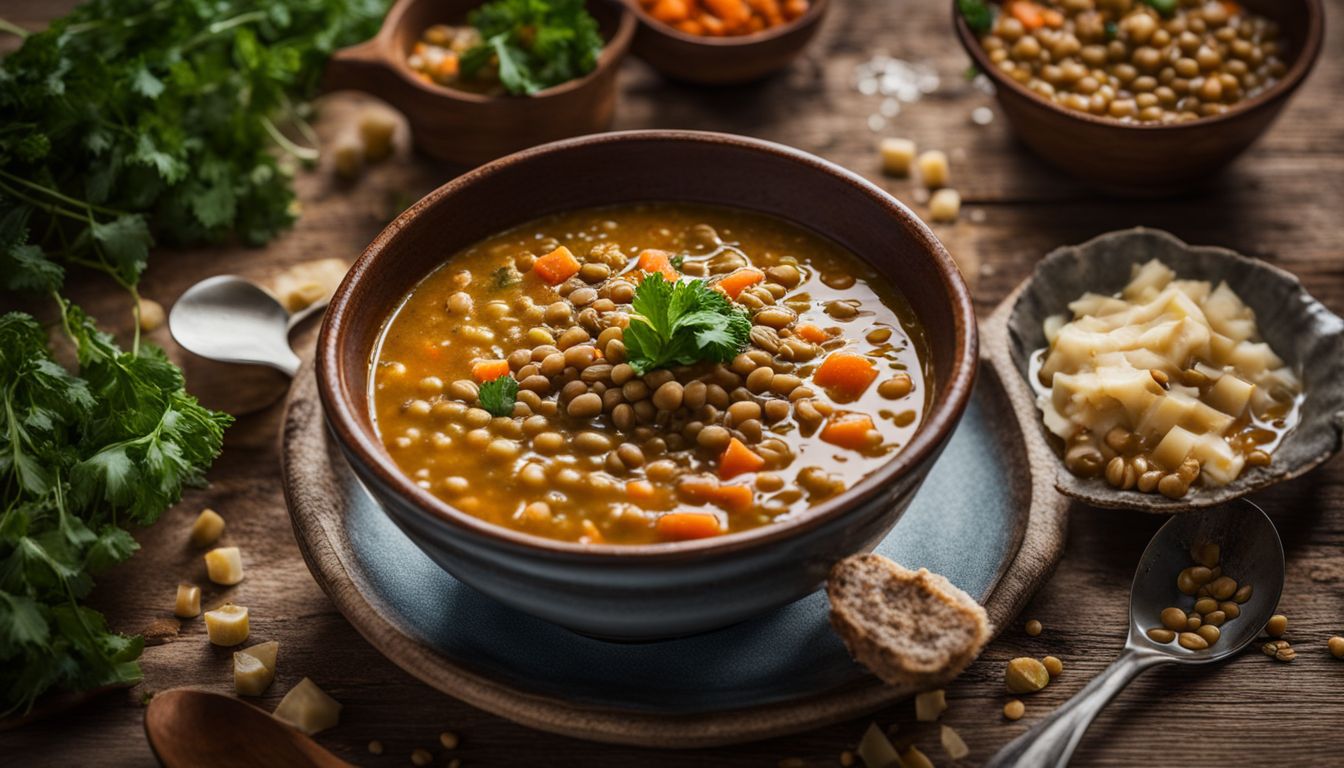
Packing a punch with their protein content, lentils are a powerhouse for anyone looking to boost their intake without relying on meat. Each spoonful of these tiny legumes delivers essential amino acids that the body craves, making them an ideal choice in plant-based diets.
They blend seamlessly into a variety of dishes, from hearty stews to refreshing salads, allowing you to up your protein game without compromising on taste or texture.
For vegetarians and vegans especially, lentils serve as a critical source of vegetarian protein, ensuring that muscle building and repair come easily. With green lentils boasting high amounts per 100g, the options for incorporating this nutritious food into meals are limitless.
Not only do they keep you feeling full longer due to their high fiber content but also contribute positively towards heart health and balanced nutrition in every bite.
Rich in B vitamins, folate, iron, and potassium

Lentils don’t just pack a protein punch; they are treasure troves of essential nutrients. They bring to the table a rich mix of B vitamins, folate, iron, and potassium, contributing to overall health and vitality. Here’s how these key nutrients benefit your body:
- B Vitamins: These are vital for energy production and maintaining a healthy nervous system. Lentils, as a source of B vitamins, help convert our food into fuel, keeping us energized throughout the day.
- Folate: Folate is crucial for tissue growth and cell function. For expectant mothers, getting enough folate from foods like lentils can help prevent birth defects.
- Iron: This mineral is foundational for creating healthy red blood cells that carry oxygen around the body. Iron from lentils aids in preventing anemia and boosting energy levels.
- Potassium: It plays an important role in muscle function, nerve signals, and fluid balance within the body. Potassium also helps counteract sodium’s effect on blood pressure, making lentils a heart-healthy choice.
Helps with muscle building and maintenance
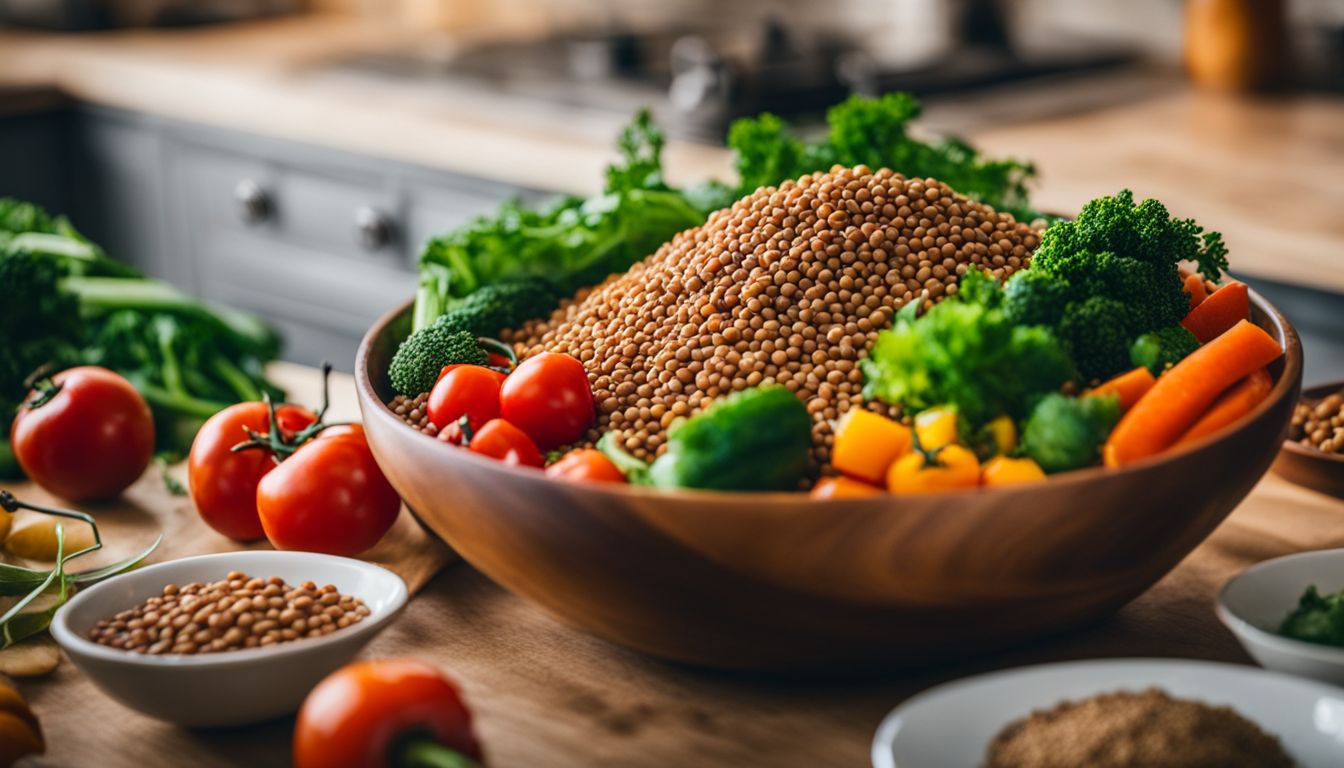
Lentils support muscle building and maintenance due to their high protein content, which is crucial for repairing and developing muscles. They are also packed with iron, an essential mineral for energy production during workouts, aiding in muscle recovery.
Additionally, the potassium found in lentils helps maintain electrolyte balance, supporting overall muscle function and health.
Furthermore, the fiber in lentils contributes to digestive health, ensuring that the body efficiently absorbs nutrients necessary for muscle repair and growth. The combination of protein, iron, and potassium in lentils makes them a valuable addition to a diet focused on muscle building and maintenance.
Can aid in appetite management

Lentils can aid in appetite management due to their high fiber and protein content. The combination of these nutrients helps promote satiety, keeping you feeling full for longer periods.
Additionally, the low glycemic index of lentils means they have a slow impact on blood sugar levels, preventing sudden spikes and crashes that can lead to increased hunger.
Furthermore, the rich array of vitamins and minerals in lentils, such as iron and B vitamins, supports overall metabolic function and energy levels, which can also help regulate appetite.
Good source of fiber
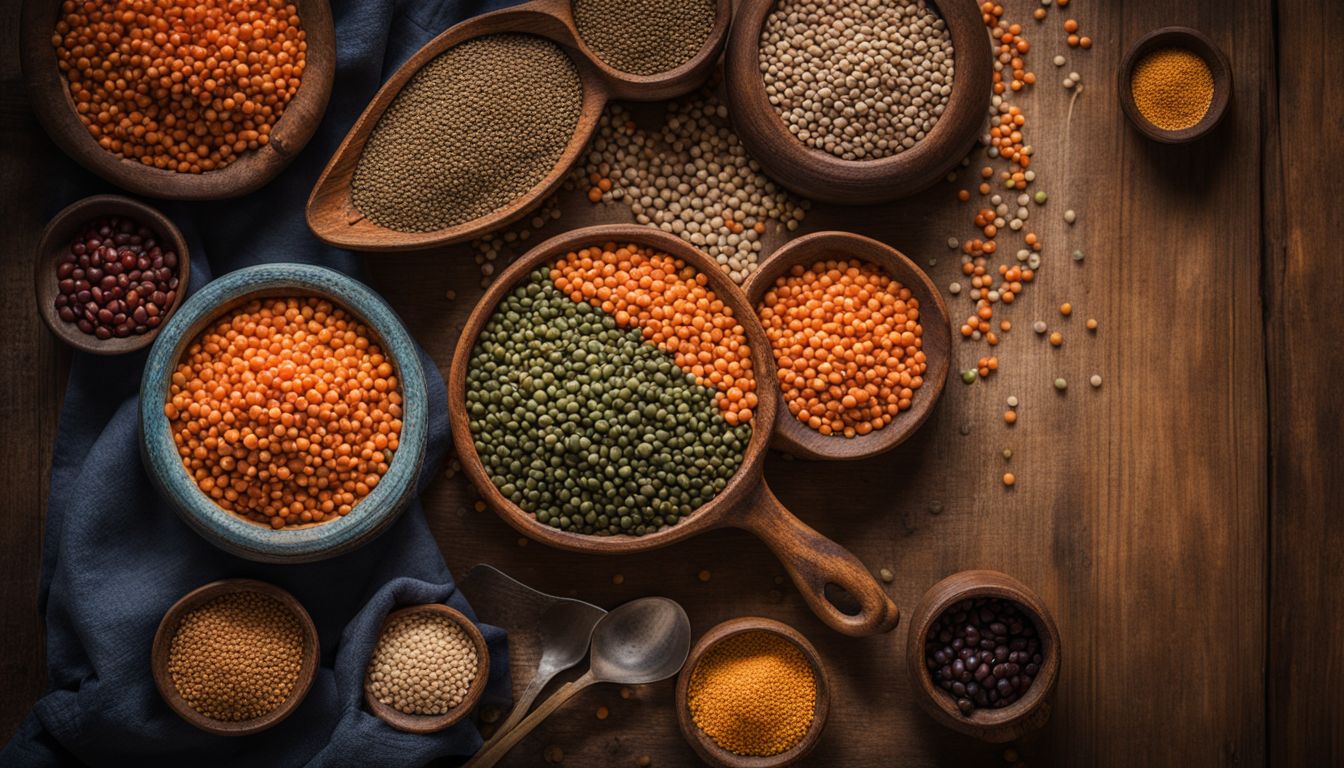
Lentils offer a significant amount of fiber, contributing to overall digestive health. With about 8 grams of fiber per half-cup serving, lentils support regular bowel movements and can help manage cholesterol levels.
The soluble fiber in lentils also aids in stabilizing blood sugar levels by slowing down the absorption of carbohydrates.
The high fiber content in lentils provides a feeling of fullness, promoting healthy weight management and reducing the risk of overeating. Additionally, this plant-based source is low in saturated fat, making it an excellent choice for those aiming for a heart-healthy diet while incorporating protein-rich foods into their meals.
Connection Between Lentils and Sports Training

Lentils are an excellent choice for athletes due to their high protein content, which supports muscle repair and growth after intense training sessions. Additionally, the fiber in lentils promotes digestive health, while the iron and potassium contribute to energy production and electrolyte balance during physical activity.
Protein for muscle repair and growth

Lentils provide a substantial amount of protein essential for muscle repair and growth. This plant-based protein is beneficial for individuals following vegetarian or vegan diets, offering an alternative source to animal products.
Protein aids in rebuilding and repairing muscle tissues after strenuous physical activities, contributing to overall strength and endurance.
The high protein content in lentils supports the body’s need for essential amino acids that are crucial for building and maintaining lean muscle mass. Additionally, lentils offer a balanced combination of nutrients such as fiber, iron, potassium, and B vitamins that work synergistically to support muscle recovery and growth.
Fiber for digestive health
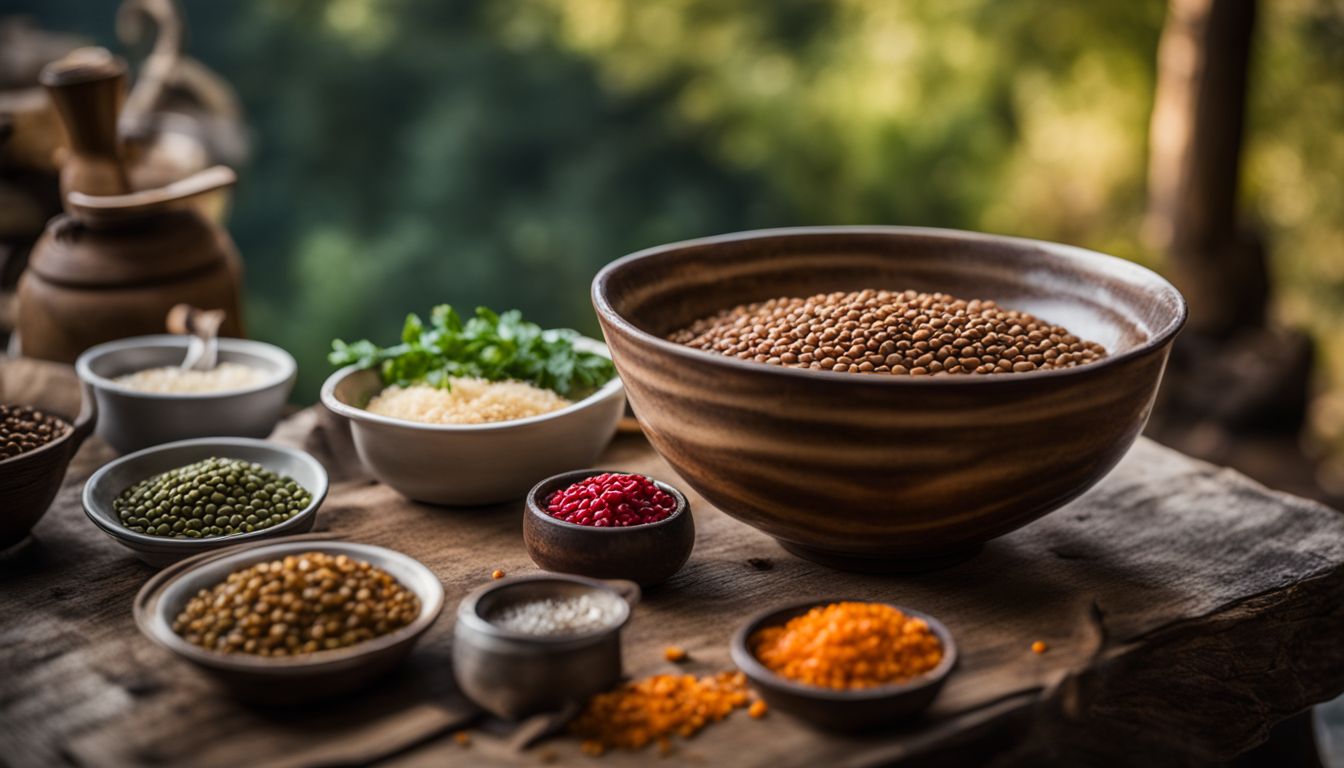
Lentils provide a significant amount of dietary fiber, contributing to digestive health. The high fiber content in lentils supports regular bowel movements and helps prevent constipation.
Additionally, the soluble fiber in lentils acts as a prebiotic, promoting the growth of beneficial gut bacteria, which aids in overall digestion and nutrient absorption. This can lead to improved gut health and may even reduce the risk of certain digestive issues such as diverticulosis.
Also Read:
Iron for energy production
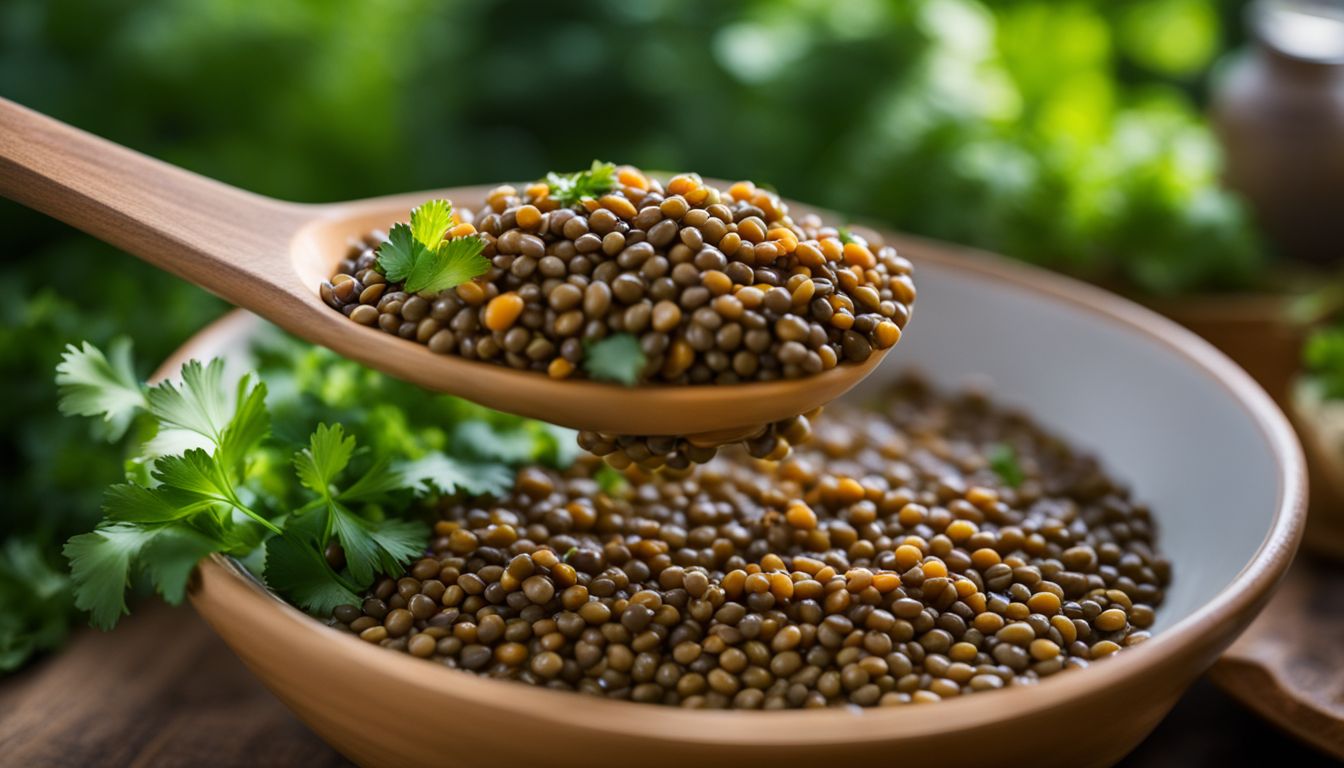
Lentils are an excellent source of iron, a crucial mineral for energy production in the body. Iron plays a vital role in carrying oxygen to cells and tissues, which is essential for maintaining overall energy levels.
Additionally, iron helps support proper muscle function and aids in the synthesis of certain hormones involved in energy metabolism. With high iron content, lentils can contribute to combating fatigue and boosting vitality.
Moreover, incorporating lentils into your diet can provide a natural way to maintain healthy blood circulation, as iron is necessary for forming hemoglobin – the protein responsible for transporting oxygen throughout the body.
Potassium for electrolyte balance
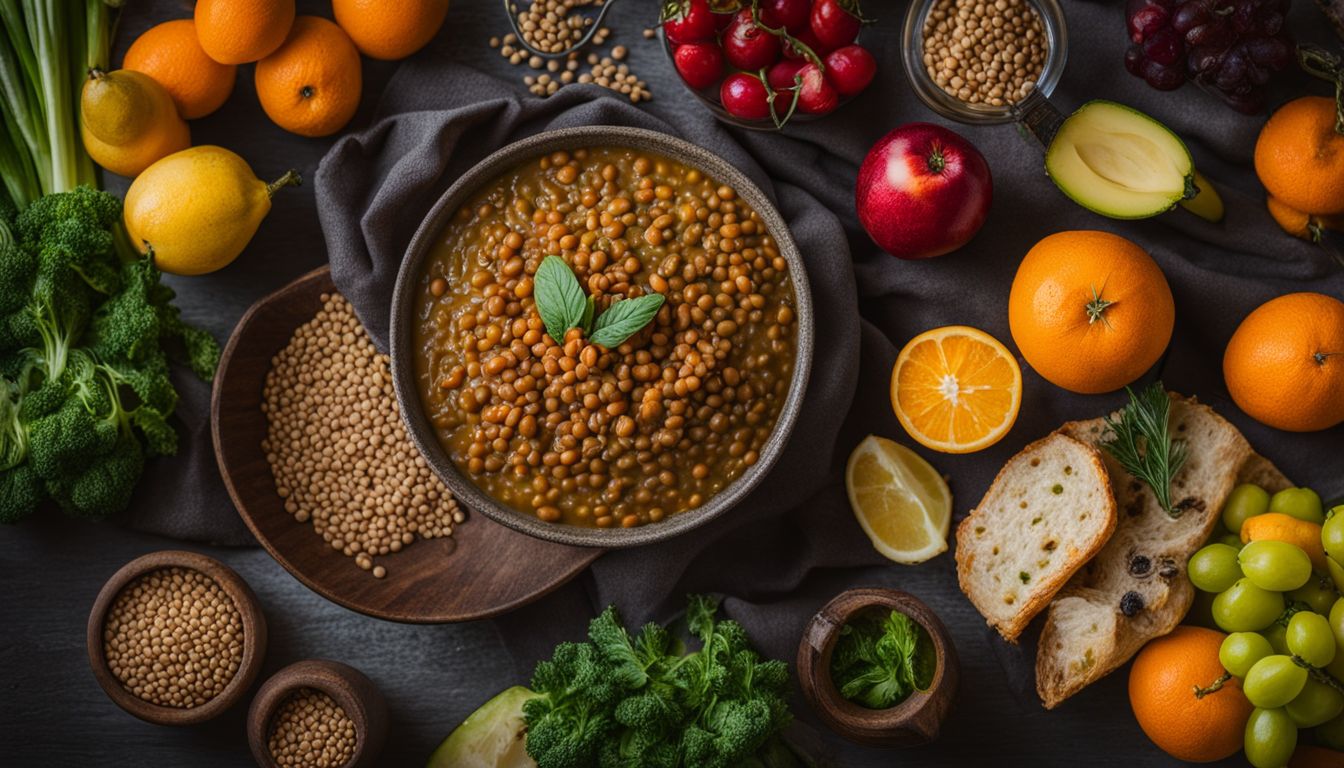
Lentils are a valuable source of potassium, an essential mineral that plays a vital role in maintaining electrolyte balance within the body. Potassium helps regulate fluid balance, muscle contractions, and nerve signals.
This is crucial for athletes and individuals engaging in physical activities as it supports proper muscle function and prevents cramping during exercise. Additionally, adequate potassium intake from lentils can help offset the effects of sodium consumption, supporting heart health by regulating blood pressure.
These properties make lentils an ideal choice for replenishing electrolytes after intense workouts or physical exertion. Incorporating lentils regularly into the diet can contribute to overall electrolyte balance and support optimal performance during physical activity.
Conclusion
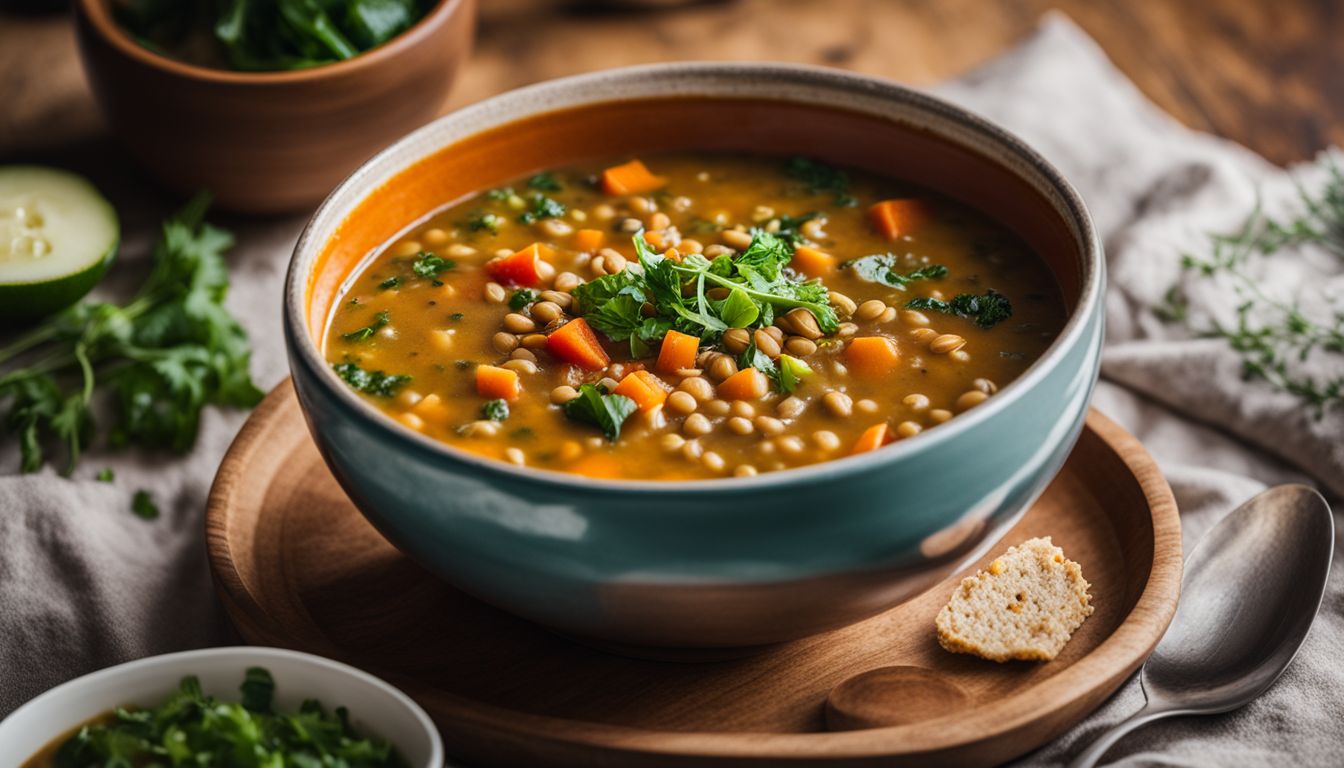
In conclusion, lentils are an exceptional source of plant-based protein and vital nutrients. Emphasizing practicality and efficiency, they offer simplicity and effectiveness in boosting overall nutrition.
Highlighting the importance and impact of incorporating lentils into one’s diet can lead to significant health improvements. Consider exploring additional resources or guidance to delve deeper into the benefits of including lentils in your meals.
As you embrace the nutritional benefits of lentils, remember that a small change in diet can yield substantial positive outcomes for your well-being.
FAQs
1. Are lentils a healthy choice for protein?
Yes, lentils are a healthy choice because they’re packed with plant-based protein and have health benefits similar to other protein-rich foods.
2. What makes lentils stand out in plant-based diets?
Lentils stand out because they offer a balanced mix of protein and carbs, plus they’re high in polyphenol-rich plant chemicals which boost your health.
3. Can eating lentils help with my overall diet balance?
Absolutely! Lentils fit well into a balanced diet as they are pulses that provide a good dose of protein-packed nutrition.
4. How do the proteins in lentils compare to other sources?
Lentil proteins are an excellent plant-based option, often preferred for their wide range of nutritional benefits compared to other sources.
Sources referenced in this article
- https://www.hsph.harvard.edu/nutritionsource/food-features/lentils/
- https://www.bbcgoodfood.com/howto/guide/top-5-health-benefits-of-lentils
- https://www.mindbodygreen.com/articles/lentils-nutrition-benefits
- https://www.ncbi.nlm.nih.gov/pmc/articles/PMC5713359/
- https://www.bobsredmill.com/blog/healthy-living/what-are-the-health-benefits-of-lentils/
- https://www.relish.com/food-wiki/153836/lentils-important-facts-health-benefits-and-recipes
- https://www.wellandgood.com/are-lentils-good-for-you/

Author
Years ago, the spark of my life’s passion ignited in my mind the moment I stepped into the local gym for the first time. The inaugural bead of perspiration, the initial endeavor, the very first surge of endorphins, and a sense of pride that washed over me post-workout marked the beginning of my deep-seated interest in strength sports, fitness, and sports nutrition. This very curiosity blossomed rapidly into a profound fascination, propelling me to earn a Master’s degree in Physical Education from the Academy of Physical Education in Krakow, followed by a Sports Manager diploma from the Jagiellonian University. My journey of growth led me to gain more specialized qualifications, such as being a certified personal trainer with a focus on sports dietetics, a lifeguard, and an instructor for wellness and corrective gymnastics. Theoretical knowledge paired seamlessly with practical experience, reinforcing my belief that the transformation of individuals under my guidance was also a reflection of my personal growth. This belief holds true even today. Each day, I strive to push the boundaries and explore new realms. These realms gently elevate me to greater heights. The unique combination of passion for my field and the continuous quest for growth fuels my drive to break new ground.




